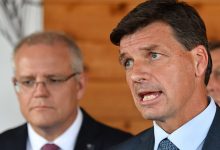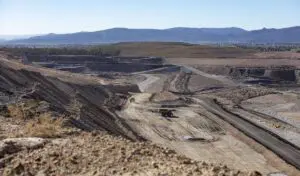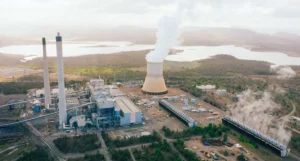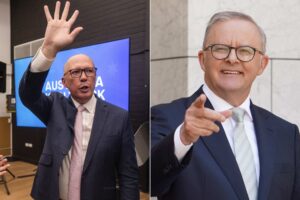Federal energy minister Angus Taylor has once again tried to shift the blame for the Coalition’s ongoing failure to establish a meaningful policy on climate change as a group of the world’s largest investors issue a collective demand for governments to do more to tackle climate change.
Taylor has attempted to admonish state government for ‘going it alone’ on energy policy, claiming that by the states each creating their own set of targets and policies for clean energy, they are working to undermine investor certainty in the energy market, ignoring the fact that this is precisely what investors are calling on governments to do.
Taylor, and his predecessors in the federal energy portfolio, have spent the last six-years under Coalition government concocting, and then subsequently abandoning, a series of energy policies that have left Australia without a meaningful pathway to stimulate new investment in low-emissions generation.
When combined with uncertainty around the future of coal in Australia’s electricity market, such as this week’s panic over the future of the Yallourn power station, it is no wonder state governments, who have been responsible for a large proportion of the historical investment in the electricity sector, have stepped in to fill the leadership vacuum.
Despite all this, Taylor has continued to try to label state governments as the ones being reckless on energy policy, singling out Victoria’s emissions reduction target as being ‘crazy’.
“We need to make sure that we don’t have state governments running off on their own,” Taylor told Sky News on Tuesday.
“Not only did we go to the last election rejecting Labor’s 45 per cent emissions reduction target, but we’ve also got the Victorian government talking about a 60 per cent emissions reduction target”.
“This is the kind of thing that will create the kind of investment uncertainty that will undermine the ability to deliver a fair deal on energy.”
Wow .. States coming up with their own energy policy "will create investment uncertainty, undermine electricity"
Pot Kettle Black?
At least the states have an energy policy. https://t.co/3KQglsHzph
— Dylan McConnell (@dylanjmcconnell) June 25, 2019
Except, despite what Taylor has claimed, investors are actually calling on governments to put in place policies that will support a transition away from fossil fuels, including the reintroduction of a carbon price, a phase-out of fossil fuel subsidies and an end to thermal coal.
Taylor has often invoked “investor certainty” hiding behind the vagueness of the term as an opaque means of justifying a go-slow approach to energy transition.
Fortunately, we know exactly what investors are looking for in terms of certainty, and the newly dubbed minister for “emissions reduction” should be paying attention.
A collection of 477 global investors have issued a joint statement ahead of a meeting of G20 leaders in Osaka, calling on governments to do more to tackle climate change and plan for a world without coal.
Specifically, investors have called on governments to “put a meaningful price on carbon” and to “phase out thermal coal power worldwide by set deadlines.”
“As institutional investors with millions of beneficiaries around the world, we reiterate our full support for the Paris Agreement and strongly urge all governments to implement the actions that are needed to achieve the goals of the Agreement, with the utmost urgency,” investors said in the statement.
The group of investors, that manage a combined $US34 trillion in investment assets, with signatories to the statement including Australian investment managers, including Australian Super, Cbus, Hesta, First State Super, IFM Investors and BT Financial Group.
Investors have become increasingly concerned about the risks that climate change poses to their portfolios, with no investment manager wanting to be caught holding stranded assets, or assets that are particularly vulnerable to the physical impacts of climate change.
Chair of the Investor Group on Climate and a director of construction industry superannuation fund Cbus Stephen Dunn told ABC’s RN Breakfast that it is in the interest of investors, and the wider Australian economy, for the Government to actually deliver a plan to support the shift towards a zero-emissions economy.
“We are very concerned that if we don’t start acting now; the impact on economic growth, the impact on investment opportunities and the impact on our ability to generate significant returns for our beneficiaries, is significantly impaired,” Dunn said.
“The [investor’s] pledge is around the willingness to work with governments to actually come up with a set of policies, and a plan, that we can deploy money in to actually help the economy move to a low-carbon basis.”
“From our perspective, it is not a threat, but an offer with regards to working with governments to actually step up their ambition, to actually meet the Paris accord requirements, in terms of a 45% emissions reduction by 2030 and a plan to go to a zero carbon environment by 2050.”
“What we’re saying is please step up that ambition, because we have the money to back that ambition.”
“From our perspective and if I look at it from an AEMO projection in terms of getting to a zero carbon energy system in Australia, we need to be phasing out coal by roughly 2040”.
During his tenure as federal energy minister, Angus Taylor has overseen a period of increasing greenhouse gas emissions in Australia and has raised fears among members of the COAG energy council that he has no plans for reducing emissions in the electricity sector and may disengage with the council altogether on the issue of emissions policy.
This has prompted criticism from his own side of politics, with newly minted NSW energy minister, Liberal Matt Kean, calling on the federal government to bring an end to ‘ideology and populism being pitted against science’ in climate and energy policy.
Kean also called for the National Energy Guarantee to be put back on the table, a call echoed by federal independent Zali Steggall, who will take her seat as the new member for Warringah when parliament resumes on 2 July.








